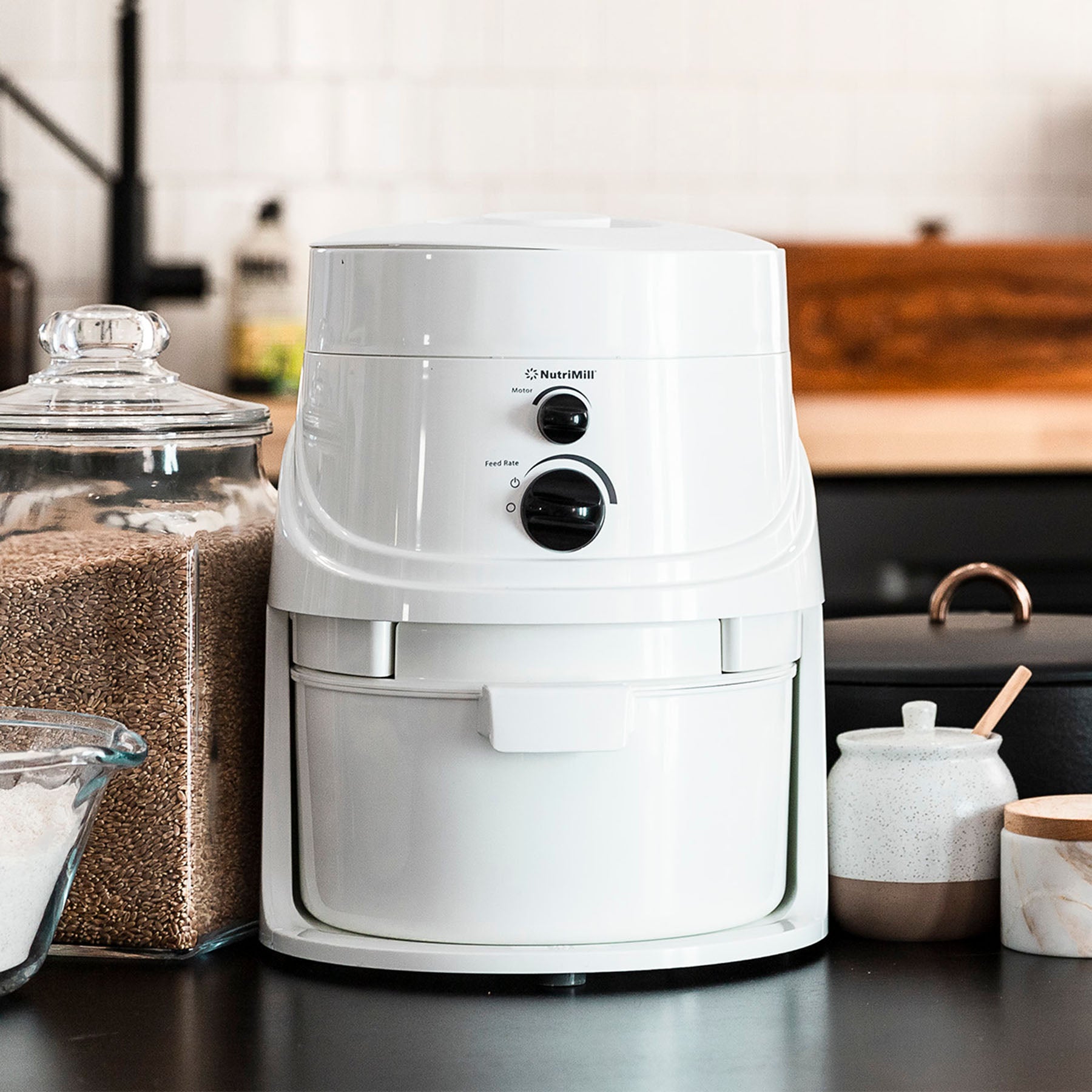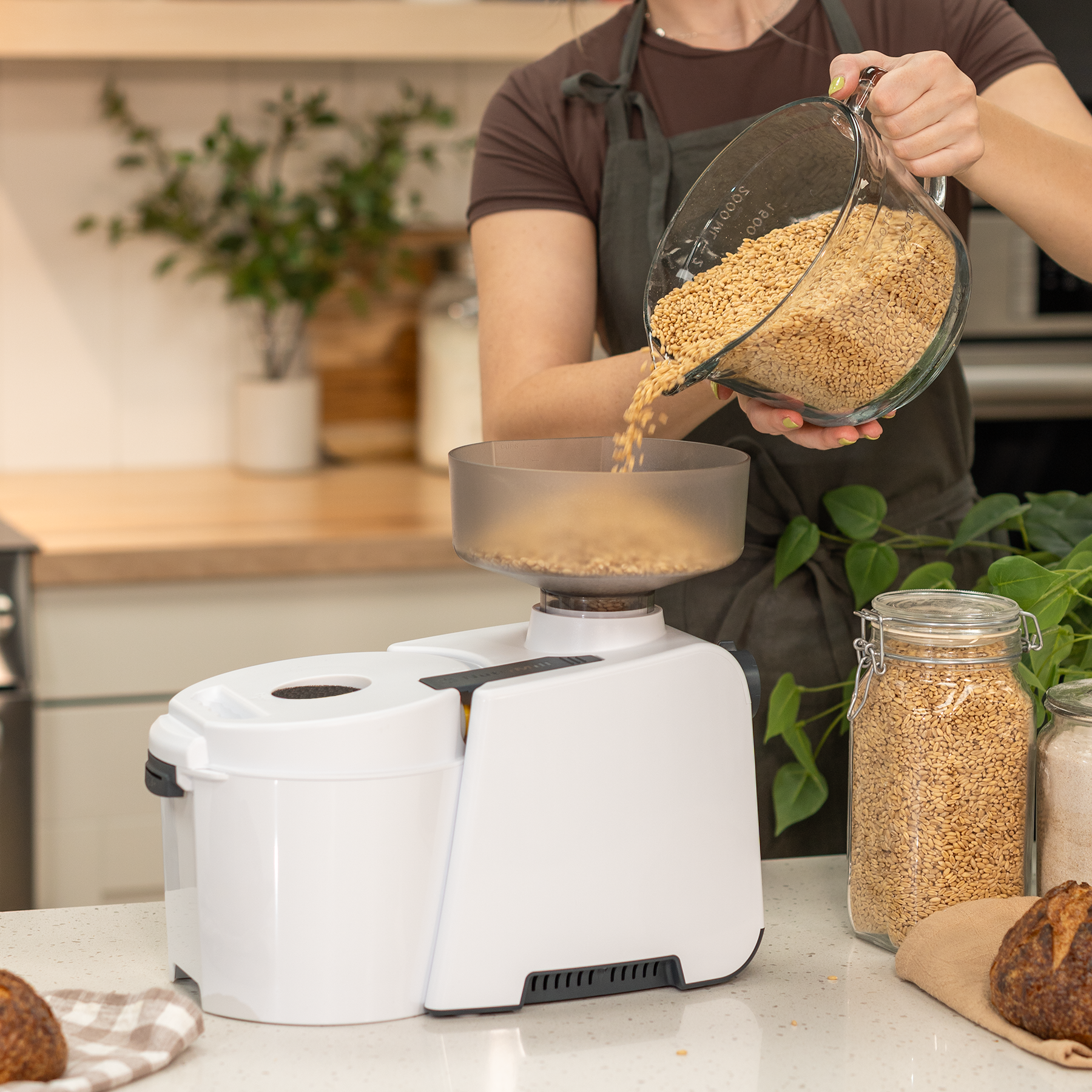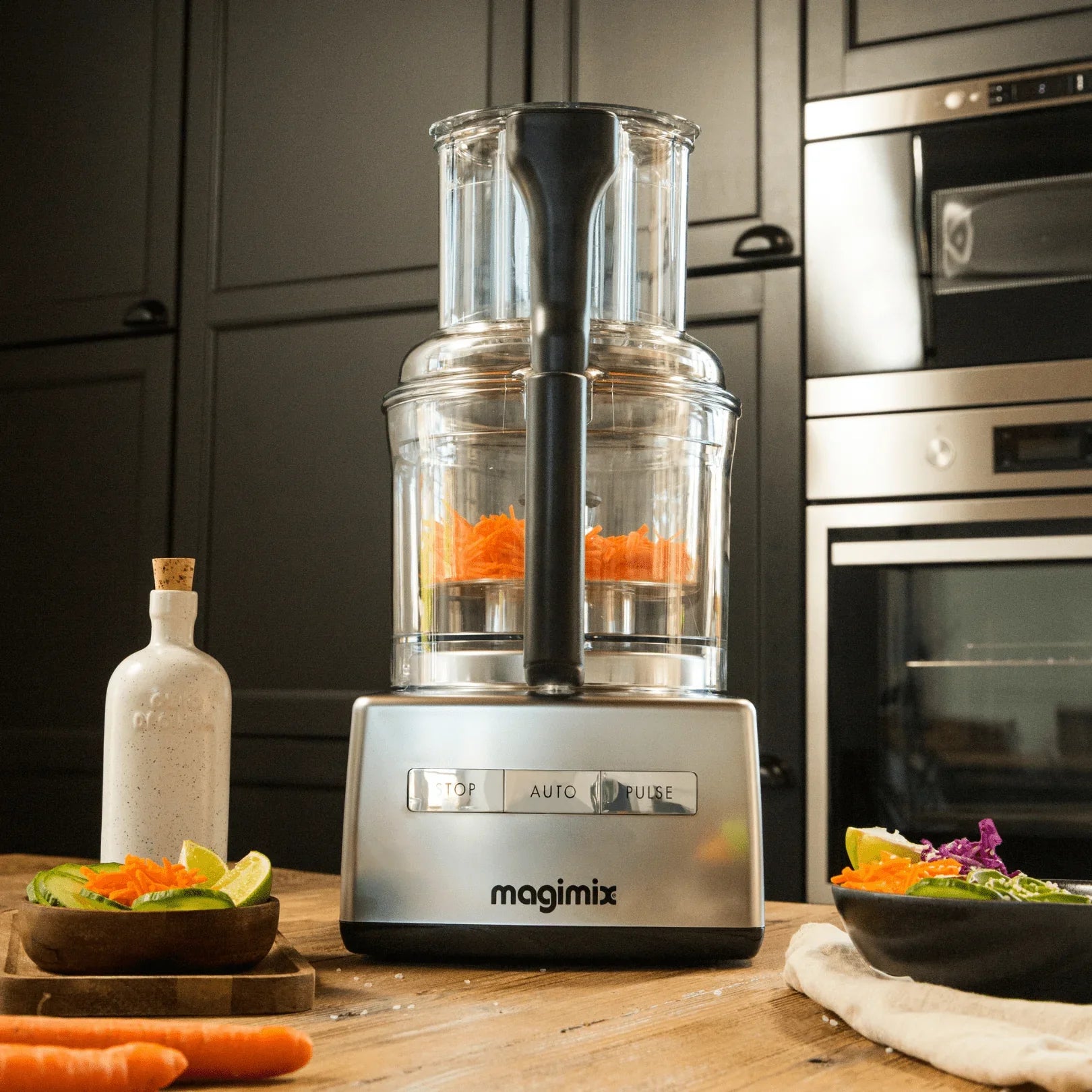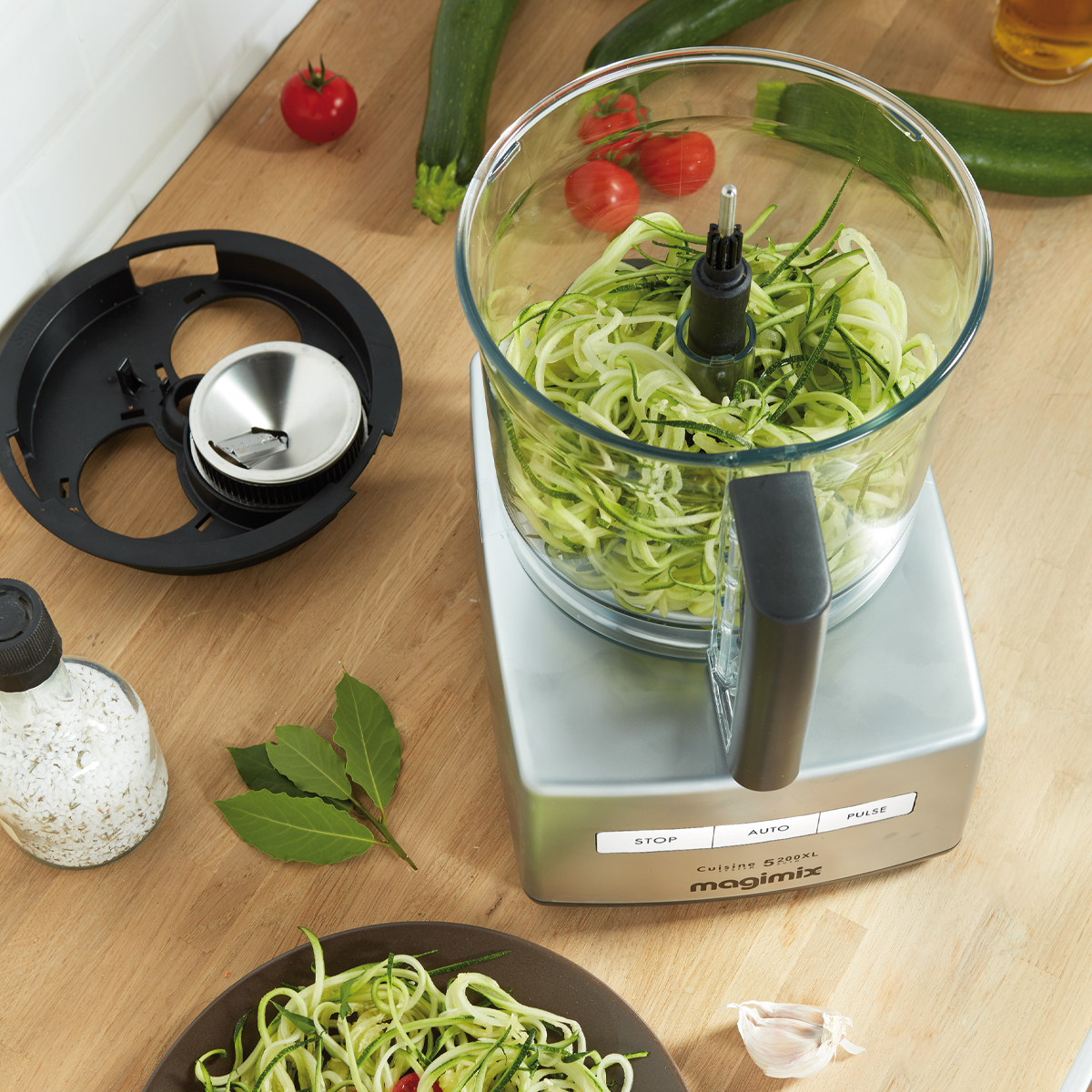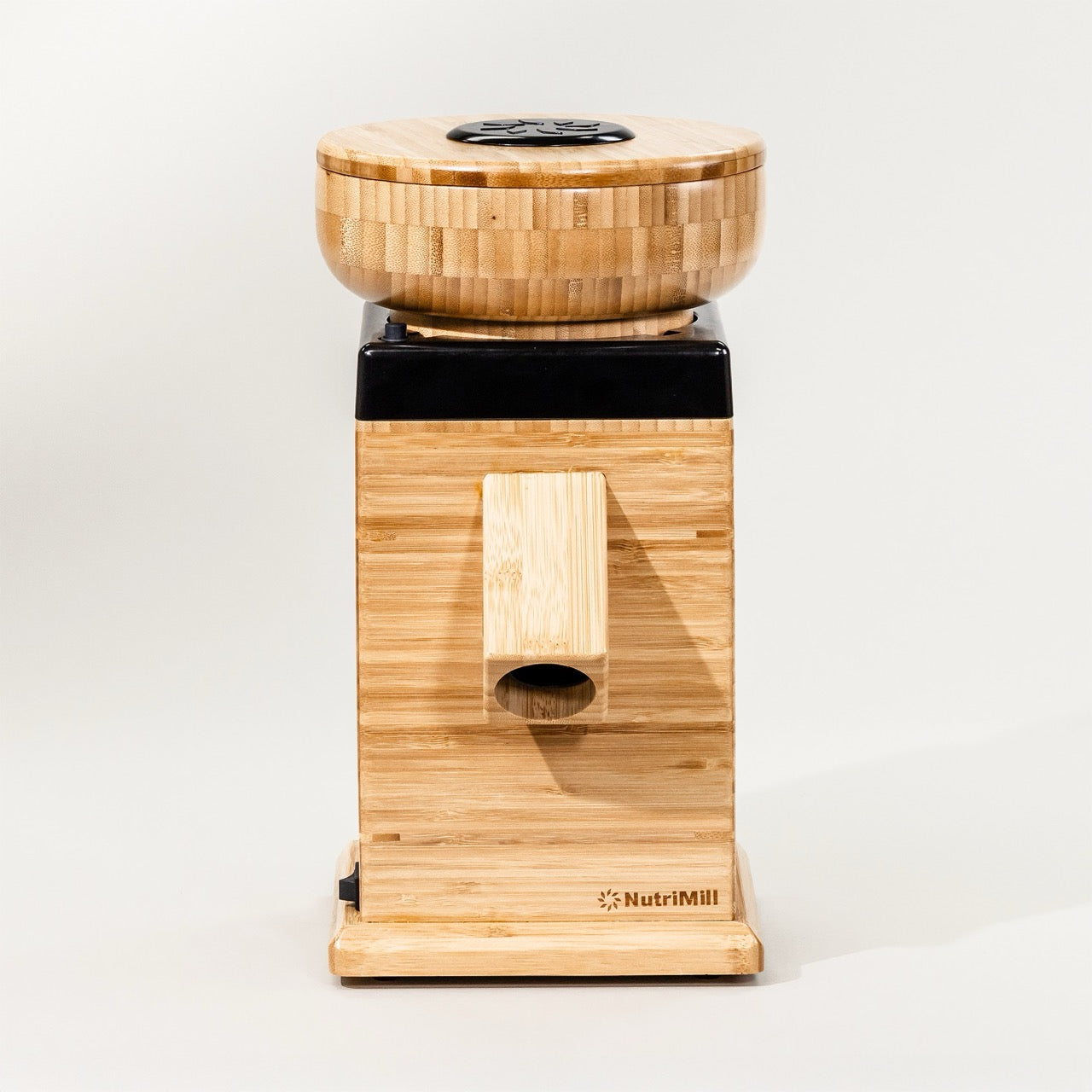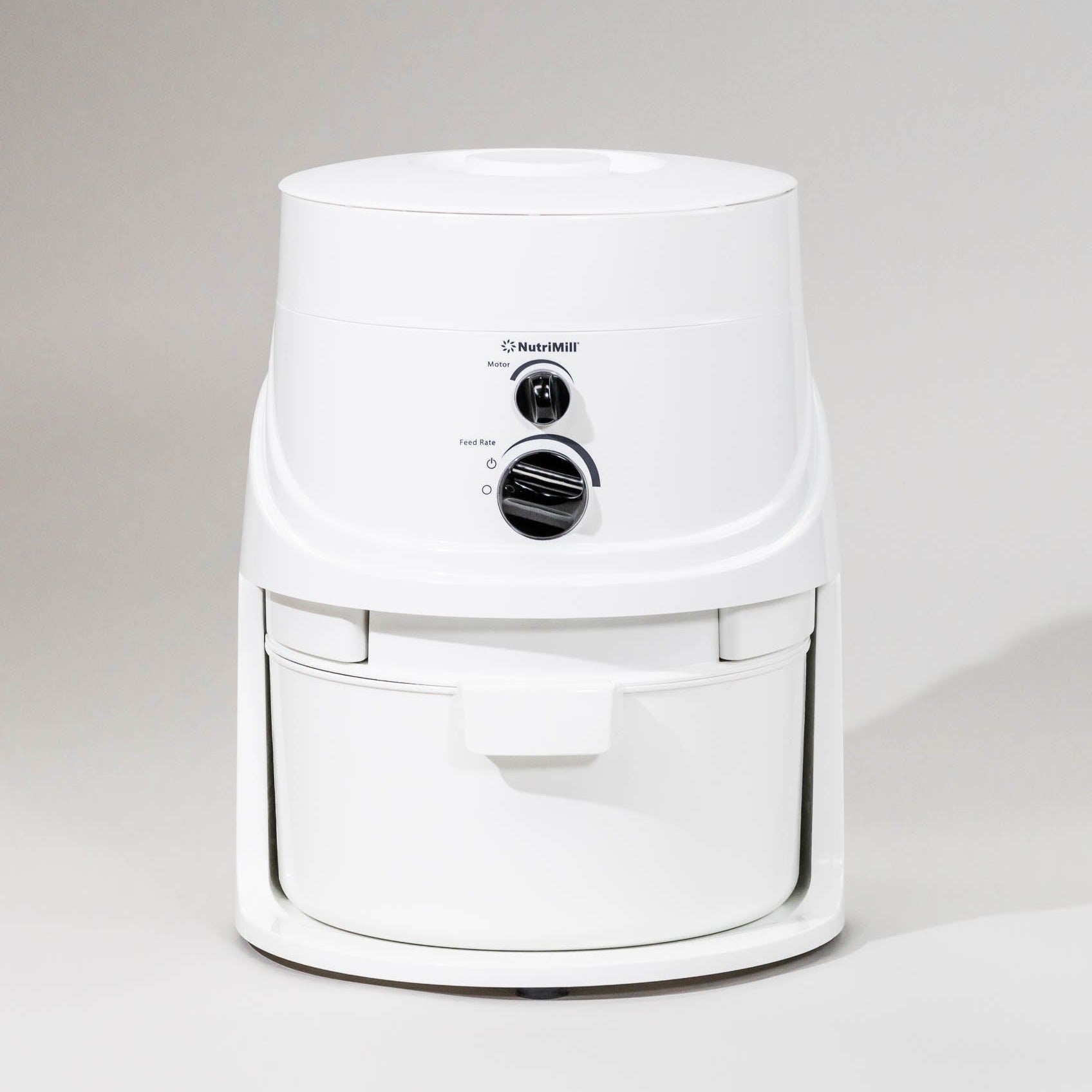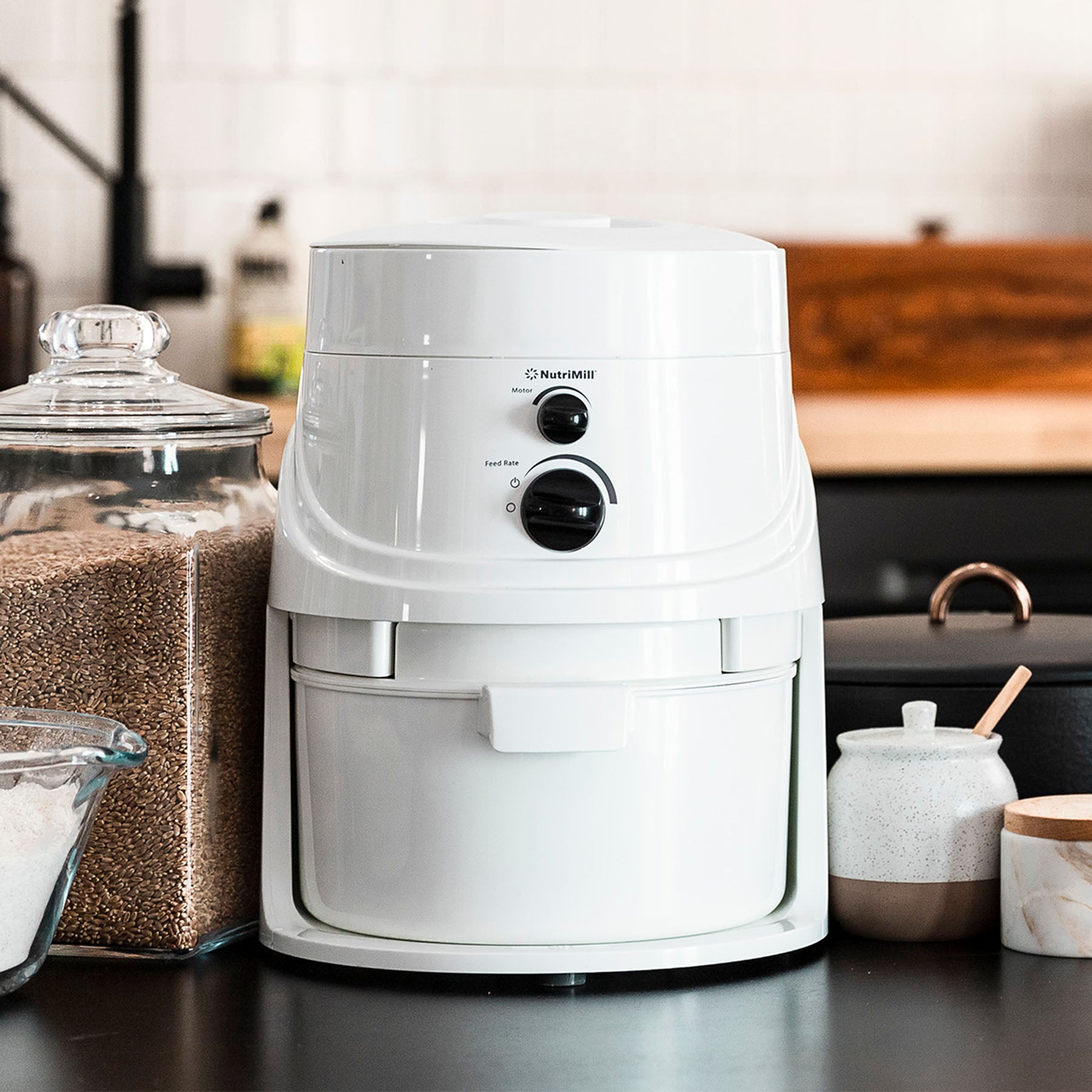Are you a baking enthusiast? Maybe you're someone who wants to take control of what goes into their food? If so, you’ve probably come across the debate between using store bought whole grain flour and home-milled flour. Whole grain flour is popular because it retains all parts of the grain, which means it's packed with nutrients. But is there a difference between store-bought and home-milled whole grain flour? Let’s dive into the world of whole grain flour together!
Understanding Whole Grain Flour
What is Whole Grain Flour?
Whole grain flour is a type of flour that is made by grinding the entire grain, including the bran, germ, and endosperm. This flour is considered to be healthier than refined flour, which is made by removing the bran and germ from the grain. Whole grain flour is packed with nutrients, including fiber, vitamins, minerals, and antioxidants. These nutrients are essential for maintaining good health and preventing chronic diseases.
Whole grain flour is used in a variety of baked goods, including bread, muffins, and cookies. It has a nutty flavor and a slightly coarser texture than refined flour.
Health Benefits of Whole Grain Flour
Whole grain flour is known to have numerous health benefits. It can help reduce the risk of chronic diseases, such as heart disease, diabetes, and certain types of cancer. This is because it contains high levels of fiber, which can help lower cholesterol levels and improve blood sugar control.
In addition to its disease-fighting properties, whole grain flour can also help with weight management. Its high fiber content can keep you feeling full for longer, reducing the need for overeating. This can be especially helpful for those who are trying to lose weight or maintain a healthy weight.
Whole grain flour is also beneficial for digestion. The fiber in the flour can help promote regular bowel movements and prevent constipation. It can also help feed the good bacteria in your gut, which can improve overall gut health.
Lastly, whole grain flour is a great source of antioxidants. Antioxidants are important for protecting your cells from damage caused by free radicals. They can also help reduce inflammation in the body, which is linked to many chronic diseases.
In summary, whole grain flour is a nutritious and delicious alternative to refined flour. It can provide numerous health benefits, including reducing the risk of chronic diseases, aiding in weight management, improving digestion, and providing antioxidants. So, the next time you're baking, consider using whole grain flour for a healthier and more flavorful option!
Store Bought Whole Grain Flour
Whole grain flour is an essential ingredient in many recipes, from bread to cookies to pasta. While there are many options for obtaining whole grain flour, store-bought flour is a popular choice for its convenience and accessibility.
Pros of Store Bought Whole Grain Flour
Store bought whole grain flour is easily accessible from most grocery stores. It can be found in the baking aisle or specialty health food section. It's convenient and can be used right away in recipes, without the need for any additional preparation. This is especially helpful for those who are short on time or don't have access to a grain mill.
In addition, store-bought whole grain flour can also be stored for a long time, often up to 6 months, which means you can buy in bulk and save money in the long run. This is great for those who use whole grain flour frequently and want to ensure they always have it on hand.
Cons of Store Bought Whole Grain Flour
While the convenience of store-bought whole grain flour is appealing, it often comes at a cost. Many brands strip the grain of some of its nutrients during processing, making it less nutritious than home-milled flour. This is because the bran and germ, which contain important nutrients like fiber, vitamins, and minerals, are often removed during the milling process.
Chemical preservatives are also added to improve its shelf-life, which may be a concern for some health-conscious individuals. These preservatives can include things like BHA, BHT, and propylene glycol, which have been linked to health issues in some studies.
Home Milled Whole Grain Flour
Home-milled whole grain flour is becoming increasingly popular due to its superior taste and nutritional value. When you mill your flour at home, you have complete control over the process and can customize the texture and flavor of your flour.
Pros of Home Milled Whole Grain Flour
One of the most significant benefits of home-milled whole grain flour is that it is freshly ground, making it more flavorful than store-bought flour. The nutrients in the grains are preserved, giving it a higher nutritional value than store-bought whole grain flour. Additionally, you can choose from a wide range of grains, including wheat, spelt, rye, and barley, to name a few.
Another advantage of milling your flour at home is that you have complete control over the process. You can adjust the coarseness of the grind to suit your needs, whether you're making bread, pasta, or baked goods. You can also experiment with different grains and blends to create unique flavors and textures.
Cons of Home Milled Whole Grain Flour
While home-milled whole grain flour has many benefits, there are also some drawbacks to consider. For example, home milling flour can be a time-consuming process, especially if you're using a manual mill. It can take several minutes to grind enough flour for a single recipe, which may not be practical for some people.
Another potential downside of home milling flour is the cost. Investing in a high-quality grain mill can be expensive, and it may take some time to recoup the cost through savings on store-bought flour. Additionally, it's crucial to ensure your grain is free of debris, as milling dirty grains can damage the machinery and potentially contaminate the flour.
Choosing the Right Grain Mill for Home Milling
When selecting a grain mill for home milling, there are several factors to consider. Manual mills can be highly affordable and portable, making them an excellent choice for those who want to mill small amounts of flour at a time. However, they require physical effort to operate, which may not be suitable for everyone.
Electric mills can be more expensive but are faster and require less effort. They are an excellent choice for those who plan to mill larger quantities of flour or who want to save time. Additionally, some electric mills come with features like variable speed settings and automatic shut-off, which can make the milling process more efficient and convenient.
It's also important to consider the type of grains you'll be milling. Some mills are designed specifically for wheat, while others can handle a variety of grains, including spelt, rye, and barley. Be sure to choose a mill that can handle the type of grains you plan to use.
Overall, home-milled whole grain flour is an excellent choice for those who want to take control of their flour and enjoy the benefits of freshly ground, nutritious flour. With the right grain mill and a little patience, you can create delicious, healthy flour that will take your baking to the next level.
Nutritional Comparison
Nutrient Content in Store Bought vs Home Milled Flour
Whole grain flour is an important ingredient in many recipes, providing essential nutrients and fiber. However, not all whole grain flour is created equal. Store bought whole grain flour is often processed, which means it may have lost some of its nutrients. In contrast, home-milled whole grain flour contains all the nutrients of the whole grain. This means it has a higher nutritional value.
Home milling is becoming increasingly popular among health-conscious individuals who want to ensure they are getting the most nutrients from their food. By milling your own flour, you can control the quality of the grain and the milling process, resulting in a more nutritious final product.
In addition to being more nutritious, home-milled whole grain flour is also fresher than store-bought flour. This can have a significant impact on the flavor of your recipes. Fresh flour has a more wholesome flavor that can add depth and complexity to your baked goods and other dishes.
Impact on Baking and Cooking
The freshness of home-milled whole grain flour can impact recipes and give a more wholesome flavor. However, it may also have a different consistency than store-bought whole grain flour. This can be addressed by experimenting with different types of grains and fine-tuning the milling techniques.
For example, some grains may produce a finer flour than others, which can affect the texture of your baked goods. Similarly, the speed and pressure of the milling process can also impact the consistency of the flour. By experimenting with different grains and milling techniques, you can find the perfect balance that works for your recipes.
It is worth noting that while home-milled whole grain flour can be more nutritious and flavorful than store-bought flour, it does require more time and effort to prepare. However, many people find the process to be rewarding and enjoy the sense of accomplishment that comes with milling their own flour.
In conclusion, home-milled whole grain flour is a nutritious and flavorful alternative to store-bought flour. While it may require more effort to prepare, the benefits in terms of taste and nutrition make it a worthwhile investment for those who are passionate about healthy eating.
Cost and Time Considerations
Comparing the Costs of Store Bought and Home Milled Flour
The cost of home milling flour depends on the initial cost of the mill and the cost of the grains you use. Store-bought flour, on the other hand, is often more expensive than home-milled flour. But buying in bulk can help reduce the cost.
Time Investment in Home Milling
Home milling does require an investment in time, especially if using a manual mill. But this can also become part of the process and enjoyment of baking. By controlling the milling process, you can ensure the quality and nutritional value of your flour.
Conclusion
Whole grain flour, whether store-bought or home-milled, is a healthier and more nutritious option than refined flour. While store-bought flour does offer convenience, especially for those with a busy lifestyle, it's often processed and stripped of some of its nutrients. Home-milled flour, on the other hand, is more nutritious, fresher, and customizable. It is up to you as a baker to decide which option suits your lifestyle best. With all the information we’ve shared with you, we hope you’ll be able to make a more informed decision.

